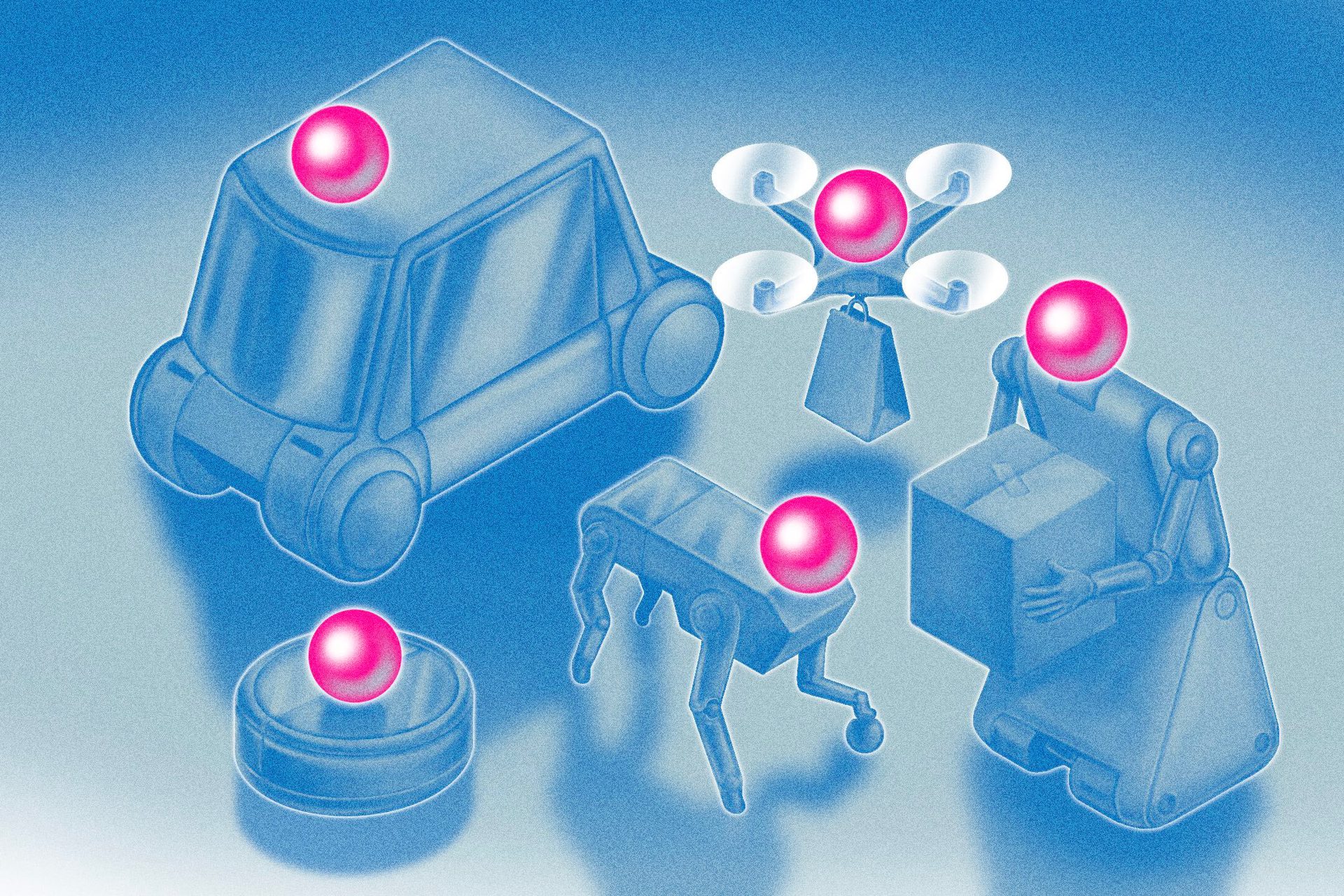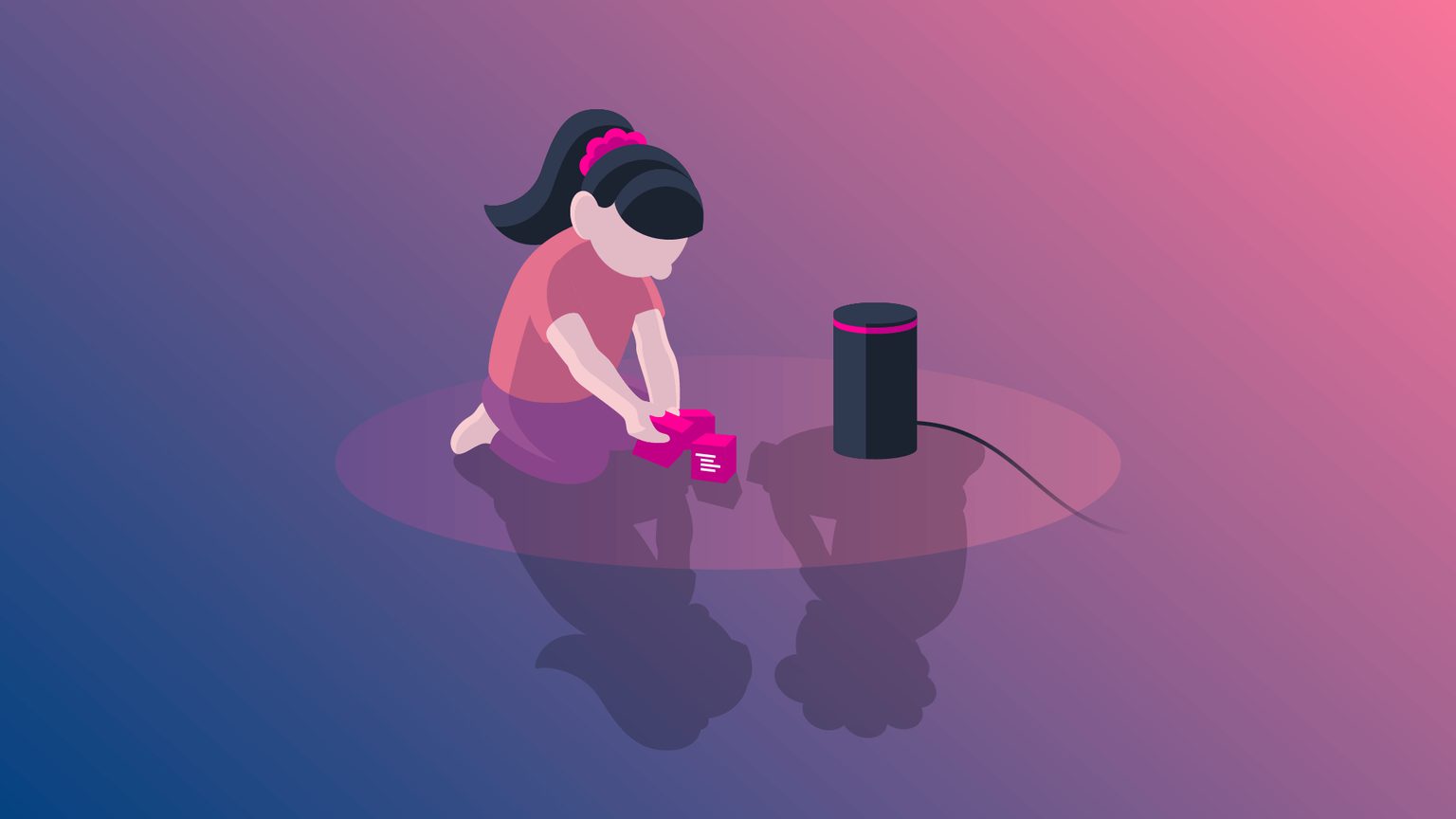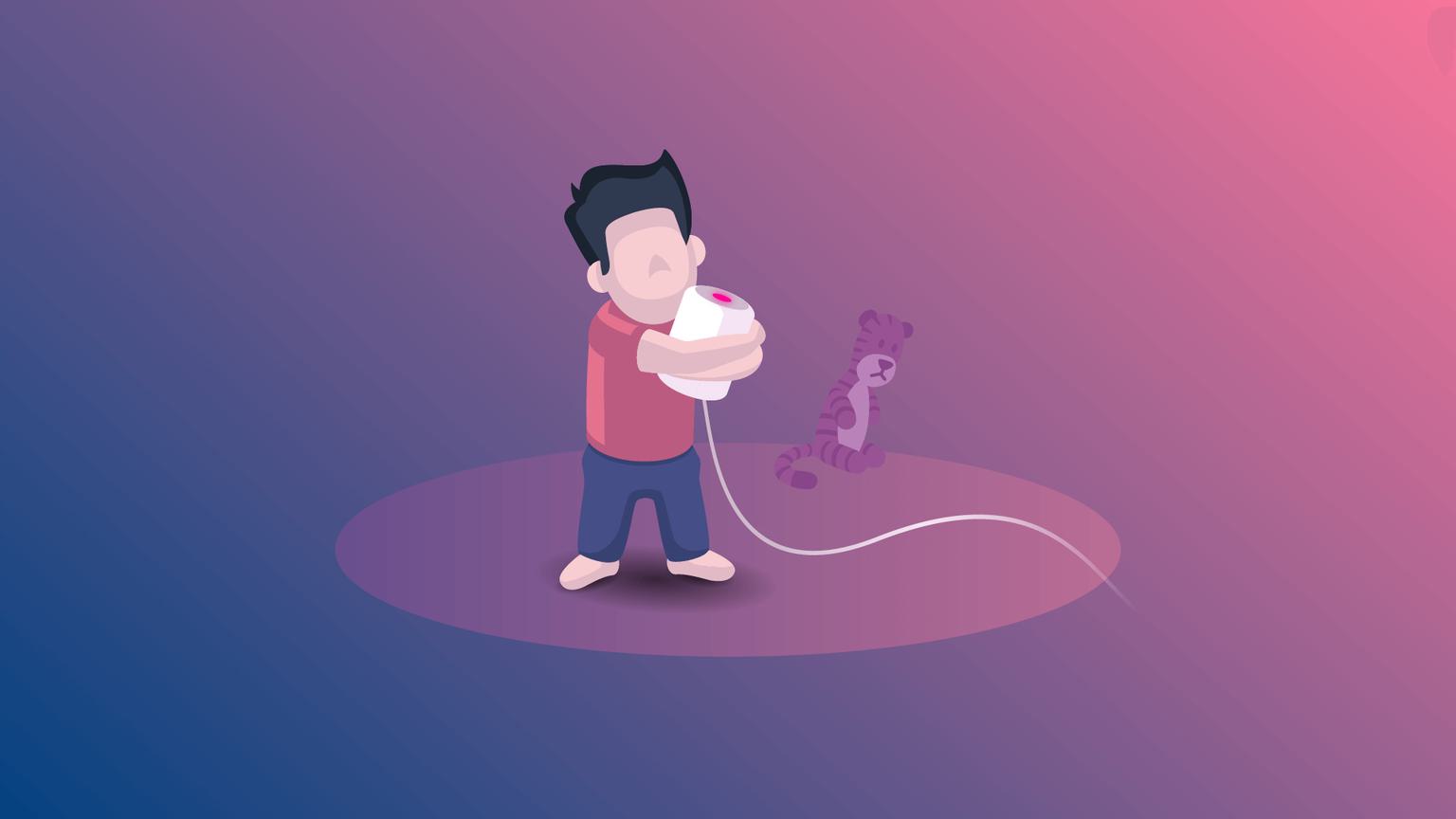
Technology

In 2021, nearly 95 million people in the US are estimated to own at least one smart speaker, up from 76 million in 2020, according to data from Edison Research. On top of this, 85% of people in the US own a smartphone, many of which come standard with virtual assistants like Siri or Google Assistant.
It should come as no surprise that our home-based AI are receiving as much interaction from our kids as they do from adults. But what kind of effect does growing up with these never-ending robotic sources of information-on-demand have on the cognitive development of our children? At Teague, we're exploring the positive and potentially negative effects, and have unearthed how we can mitigate the latter through design.
Positive 01
With a dead-simple Q&A-based screenless interface, virtual assistants make learning easier and faster for children who are constantly asking questions. While parents may eventually grow fatigued with their inherent curiosity of never being satisfied with an answer, virtual assistants never tire of answering the “whys” of children, fueling their curiosity.
“In this way, these devices are great for kids,” says Solace Shen, a Cornell University psychologist who studies how children interact with robots to NPR. “Kids are so curious, and they can learn a lot of facts and information from the devices, without parents having to bring out their phones or computers.”
Positive 02
Mama. Dada. Hey Google? The landscape of first words that kids are saying today is shifting, thanks to virtual assistants. The two-year-old girl featured in this article, for instance, started talking to Alexa and Google when she was just six months old, with both names being among the first 50 words in her lexicon.
While this may seem simultaneously adorable and shocking, it’s only becoming more commonplace. And it has some benefits: In learning commands like “Alexa, lights off” or “Ok Google, jingle bells”, children are learning how to communicate more clearly and are expanding their vocabulary rapidly and at an earlier age than generations before.
Positive 03
In a world where smart speakers tend to have a bias in who they can understand, children are at a huge disadvantage. In a recent client project working with children and VUI-based AI, the design team at Teague observed a lackluster 2/3 success rate of the assistant interpreting input from children; whereas adults commonly experienced a success rate above 90%.
There’s a potential silver lining to this, however: in a study done quite by accident, University of Washington researchers investigated what happens when children are unable to get their point across to virtual assistants. Kids, who inherently learn by mimicking or through repetition, were found to have exceedingly more patience than their guardians, many of whom gave up trying to recover communication with the device after a few tries.
Positive 04
Long term, could growing up with virtual assistants as a natural part of everyday life cut down on screen time for today’s kids? As adults, we pull out our phones constantly to check the news, weather, social media, email, and so much more. Our excessive screen time has become a scientifically-defined addiction, one many of us can’t break. But if younger generations default to using Google Assistant and Alexa for these actions, a habit ingrained in them from the time they were toddlers, could it inevitably cut down on daily screen time?
Recently, Teague worked with a partner to explore what gameplay might look like with an audio virtual assistant. While observing their children’s please-can-we-do-another reactions to engaging with our prototype, parents became increasingly excited at the possibility of the platform as a more nutritional alternative to "screen time".

Negative 01
When previous generations had doubts or questions about homework (or anything, really), they would consult their parents. For new generations, however, all the answer they could ever need are just a “Hey Google” away. While this may sound great, the fear is that virtual assistants might someday replace crucial aspects of parenting in general.
“Children heretofore were looking to their parents and grandparents for answers to various questions, and there’s a bond that develops as a result.” notes Pamela Hurst-Della Pietra, the founder and president of Children and Screens: Institute of Digital Media and Child Development.
WHAT WE'VE OBSERVED
Perhaps the most significant example of a system that introduced this type of break in familial connection was the rise of compulsory public primary and secondary education systems. In a big way, children have stopped needing to address their parents for many of their questions as a result of attending school five days a week. We should look at the behaviors that have emerged between parents and children to still have connection despite children being “plugged in” to school every weekday where they get answers.
Teachers often provide weekly updates to parents about what their children are learning. Quarterly, parents have conferences with teachers to understand specifically how their child is learning. These touchpoints make it easy for parents to engage in meaningful conversation about their children's experiences and the type of things they are learning or struggling to understand.
Furthermore, the way kids interact with virtual assistants may not actually help them learn. An advertisement for the Echo Dot Kids Edition, for example, ends with a girl asking about the distance to the Andromeda Galaxy. Alexa proceeds to regurgitate, "The Andromeda Galaxy is 14 quintillion, 931 quadrillion, 389 trillion, 517 billion, 400 million miles away..." While this is, of course, a neat feature, the chances of her retaining that knowledge are slim.
A big part of learning is actually in challenging, stretching, and bending the new information to fit into the learner’s current understanding of similar concepts. Parents will still have ample opportunity to step in, contextualize, and help their child think through otherwise sterile data points.
WHAT'S THE DESIGN OPPORTUNITY
Virtual assistants could actually be a boon to a familiar connection by providing regular digests that inform parents about the topics their children are asking about, encouraging them to find time to have meaningful conversations about these topics. Conversely, virtual assistants can recognize a topic of interest or challenge for the child via repetitive questions and encourage the child to seek further discussion with parents.
In addition to informing parents about the topics their children are engaging them with, virtual assistants could provide supplementary information on these topics, or even suggest questions that can help the parent contextualize the topics for their children.

NEGATIVE 02
While previous generations were essentially required to entertain themselves with imaginative methods of play, today’s children (in addition to the seemingly infinite screens they have access to) can simply say, “Alexa, I’m bored.” and be served with endless content to occupy their time. This lack of creativity and imagination at such an early age hurts cognitive development, and could potentially undermine a child’s ability to form healthy relationships with others.
Lack of creativity and imagination at such an early age hurts cognitive development, and could potentially undermine a child’s ability to form healthy relationships with others.
“When I was young, you looked out the window.” reminisces Kaveri Subrahmanyam, a developmental psychologist at California State University, Los Angeles. “You struck up random conversations with people. You had interesting interactions with strangers. I just wonder how much of that is lost when you have technology always ready to entertain you.”
WHAT WE'VE OBSERVED
Current virtual assistants aren’t exactly the type of AI that learns, grows, and mutates towards “the singularity”. They are all about rules. But, you know what else is all about rules? Games.
In a recent client project, we extensively explored how virtual assistants can facilitate play with children through games played both alone and within a group. Many of the games we tested with children saw them translating their everyday surroundings into sports arenas, rock concerts, distant planets, and castles—all with simple rules, audio queues, and sound effects.
Parents of the children in our studies were delighted to see their children engaging with technology in such a way that was so much more imaginative and active compared to other screen-based engagements their children have with technology.
WHAT'S THE DESIGN OPPORTUNITY?
Virtual assistants need to move beyond question-and-answer machines. As technology advances, we need to embrace the opportunity for them to facilitate play, perhaps supplementing with devices and toys from a child’s physical world, to stoke the imagination and encourage active play.
Furthermore, there is something magical about virtual assistants being introduced and widely adopted with non-visual interfaces. This audio-centric approach should be embraced as an opportunity to design imagination-nurturing interactions that allow children to fill in the gaps to think and play beyond the finite screen.
NEGATIVE 03
While it has nothing to do with the cognitive positives or negatives that home assistants have on our kids, data collection is certainly worth touching upon. Recently, Amazon unveiled their new Echo Dot Kids Edition, addressing a handful of the issues children (and their parents) had with youngsters interacting with virtual assistants: An easier time understanding still-developing vocabularies, age-appropriate apps, parental controls, time limits, the ability to review (and erase) activity, and more.
However, according to the New York Times, recent research commissioned by two prominent advocacy groups found that the device also enabled children to easily divulge their names, home addresses, Social Security numbers, and other intimate information to Alexa. Additionally, researchers reported that Amazon made it cumbersome for parents to delete their child’s personal details from the system, having to call customer service to have the entire profile erased in order to properly do so. The tech giant also failed to garner verifiable consent from parents before recording children and keeping their data on tap to reference at later dates.
Companies creating virtual assistants need to get ahead of the curve by thinking of their assistants as trusted friends in our homes.
Amazon is just one example of recent scrutiny. Another is Mattel, who actually canceled the release of Aristotle, an all-in-one “smart babysitter” thanks to a petition 10,000+ signatures strong that complained, “not only did it infringe on children’s privacy by collecting their data, but could have an unknown effect on their psychological development.”
The underlying foundational issue is, “kids edition” or not, if we as adults bring a virtual assistant into our home, it’s only natural that our children will want to interact with them, and that their data will be collected. And we can all agree that there is something particularly egregious about the notion of the privacy of children being invaded.
WHAT WE'VE OBSERVED
The overarching invasion of privacy represented by the always-listening reality of many virtual assistants is, as I’m sure we can all agree, generally bad for everyone. While we as adults inherently make the conscious decision to bring these devices into our homes, signifying a non-verbal agreement that we’re okay with our data being collected in exchange for the delight and gratification AI brings us, no such contract was made by our kids.
WHAT'S THE DESIGN OPPORTUNITY
Companies creating virtual assistants need to get ahead of the curve (and likely litigation and regulation) by thinking of their assistants as trusted friends in our homes. The assistant needs to adopt the same social privacy norms expected from any member of a household. Children are unable to provide consent, so introducing interactive privacy-enabling measures is not enough.
There are aftermarket product opportunities that will potentially start to appear if this need is not addressed. A great example of this trend already emerging is Project Alias: a teachable “parasite” that is designed to give users more control over their smart assistants, both when it comes to customization and privacy. Solutions such as Alias are great in the interim, but compromising the privacy of our children is simply not an option. The first company to properly tackle this has the opportunity to come out on top in the race to assist in our homes.
Virtual assistants, devices of our own creation, can certainly be designed further to better serve not only our households, but the relationships between caregivers and children. Fortunately, we’re still in the infancy of AI in our households, and proactively mitigating how these assistants can negatively affect the development of our children could be crucial to their success as adults.
Illustrations by David Smith